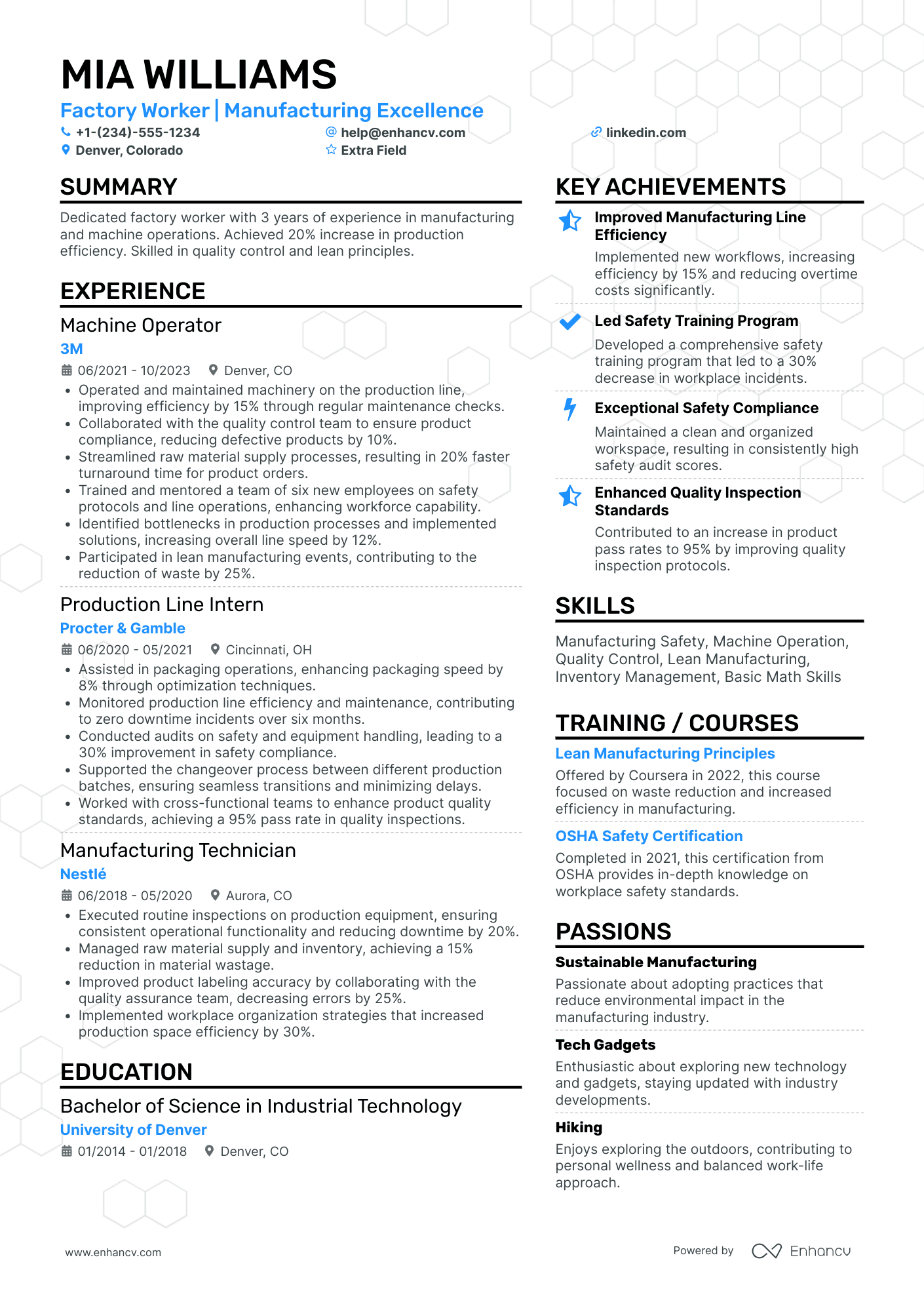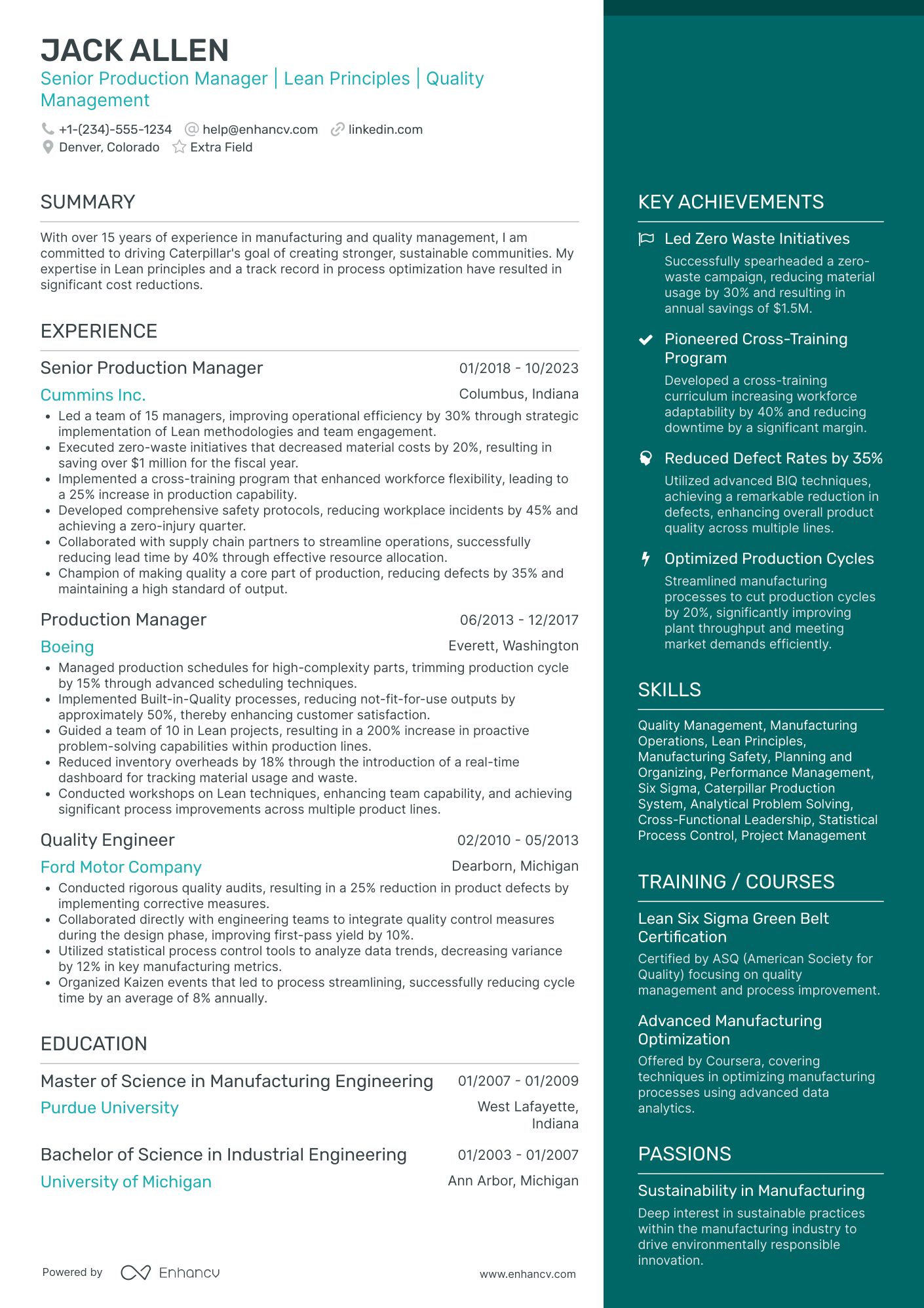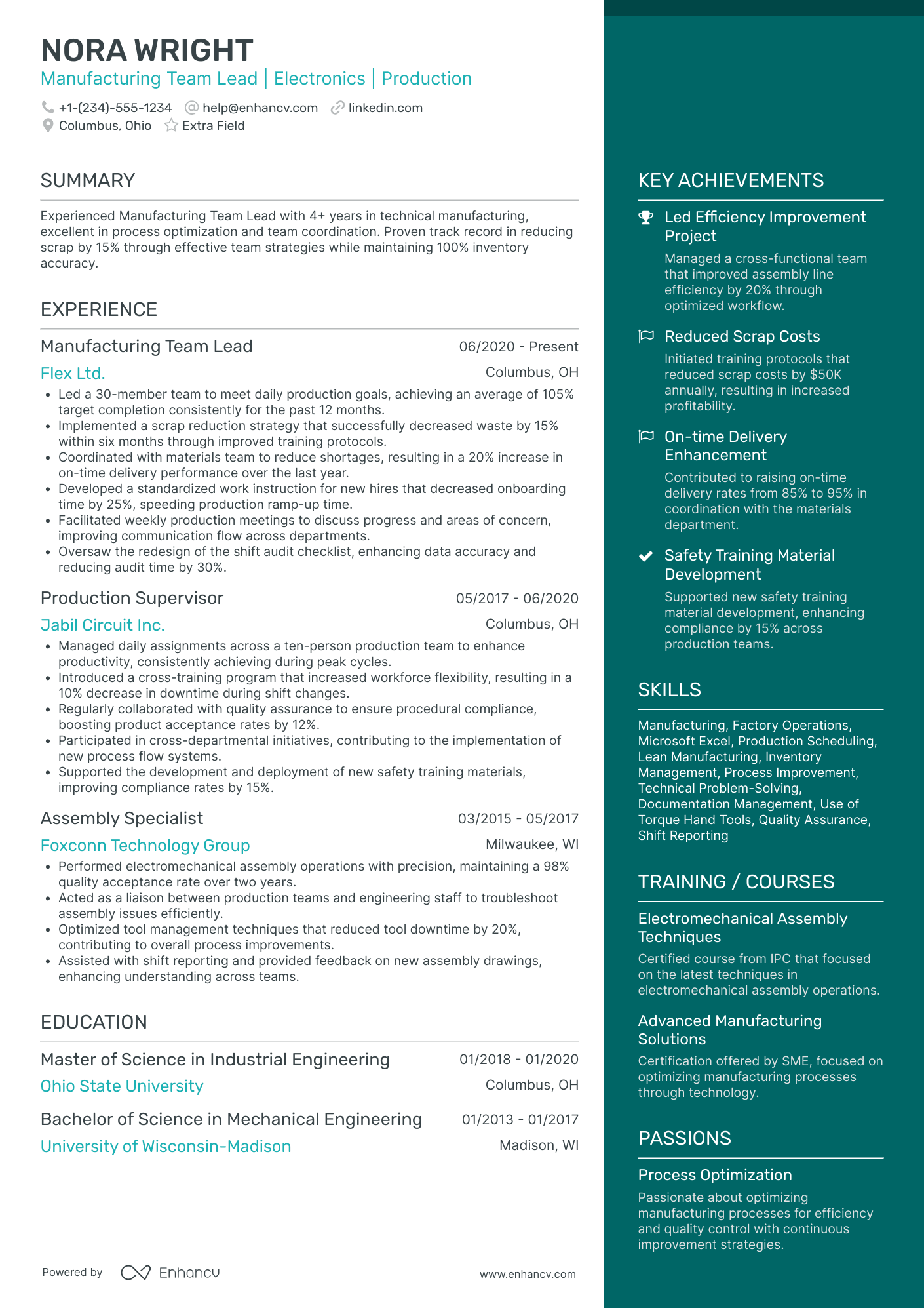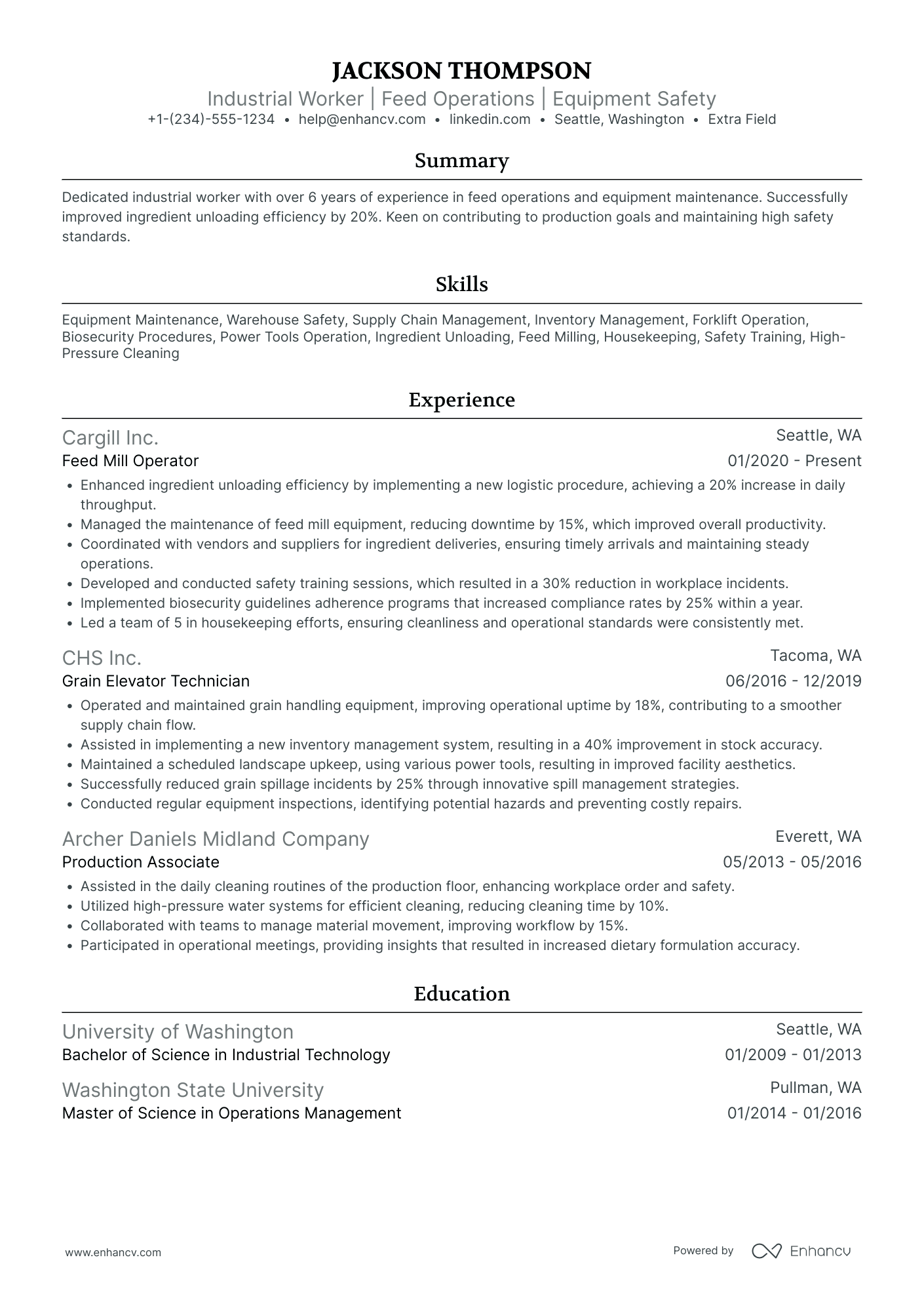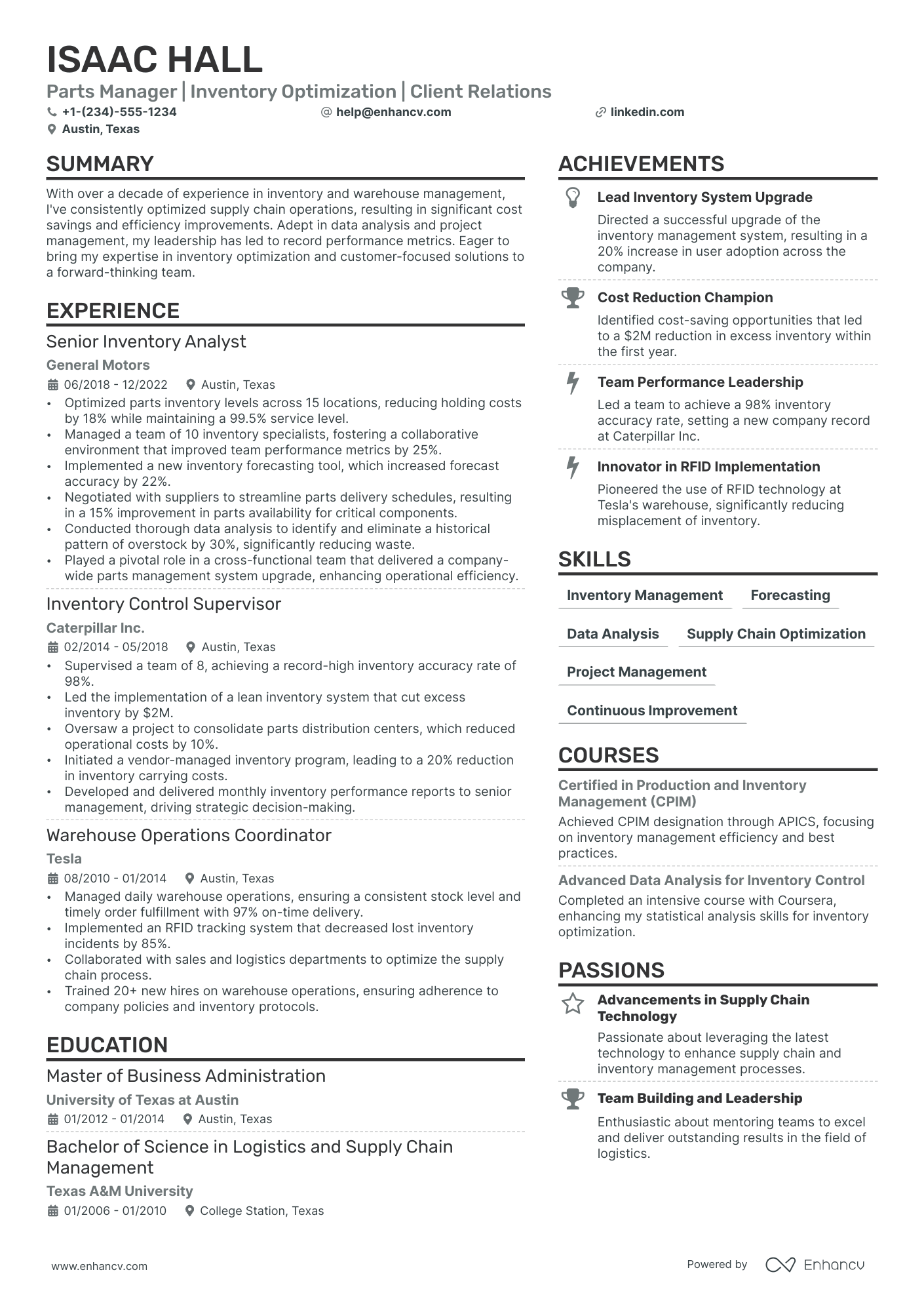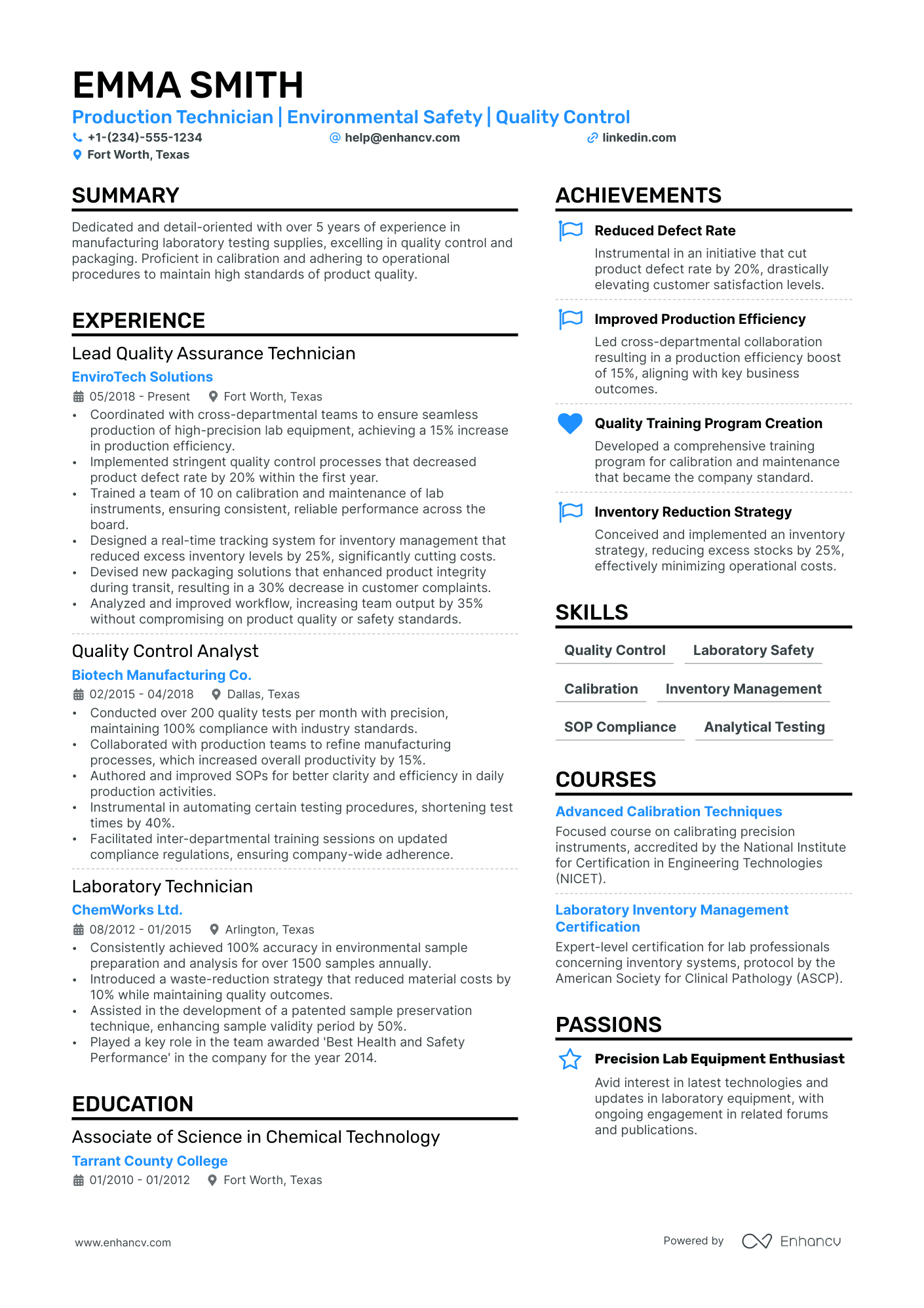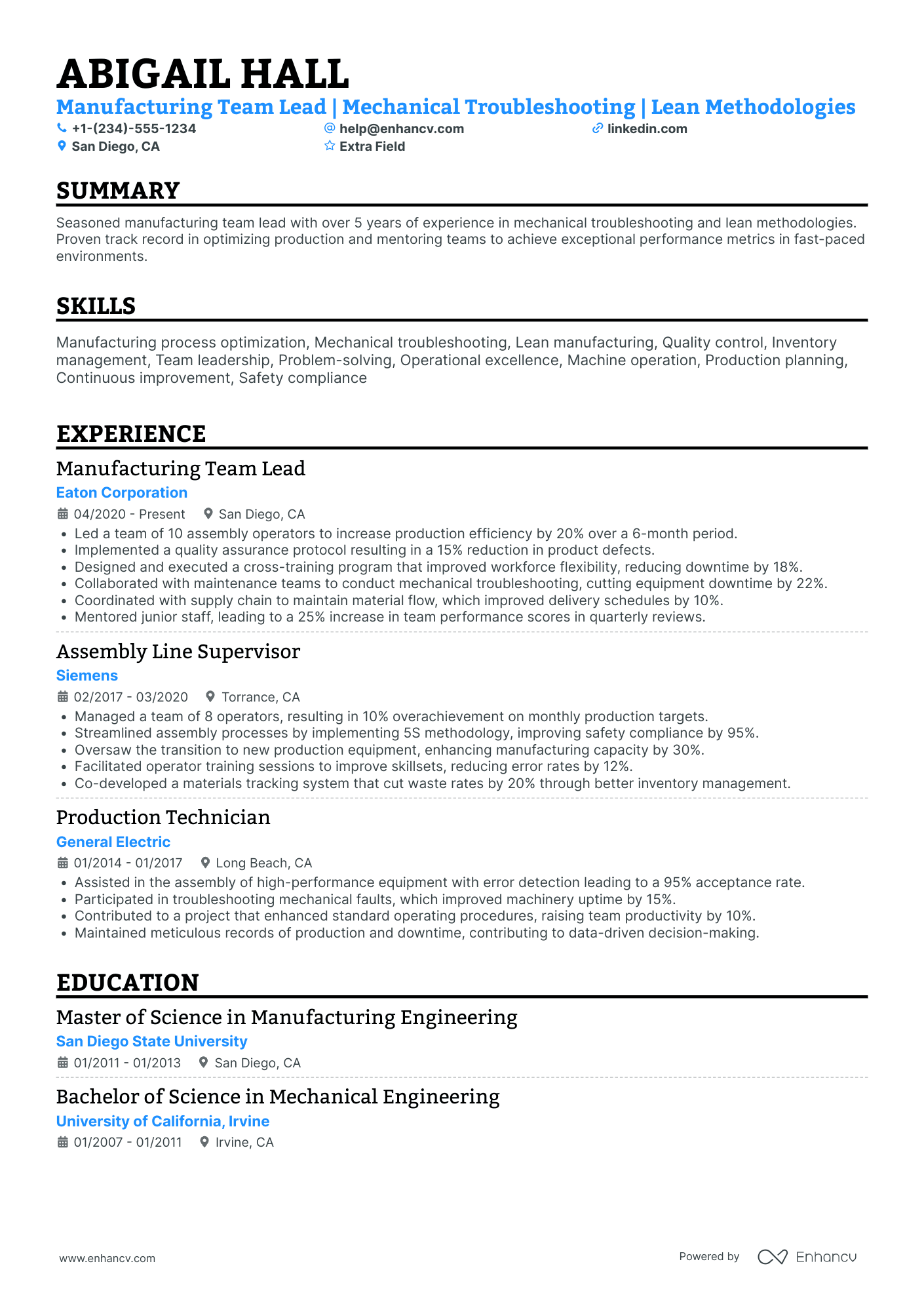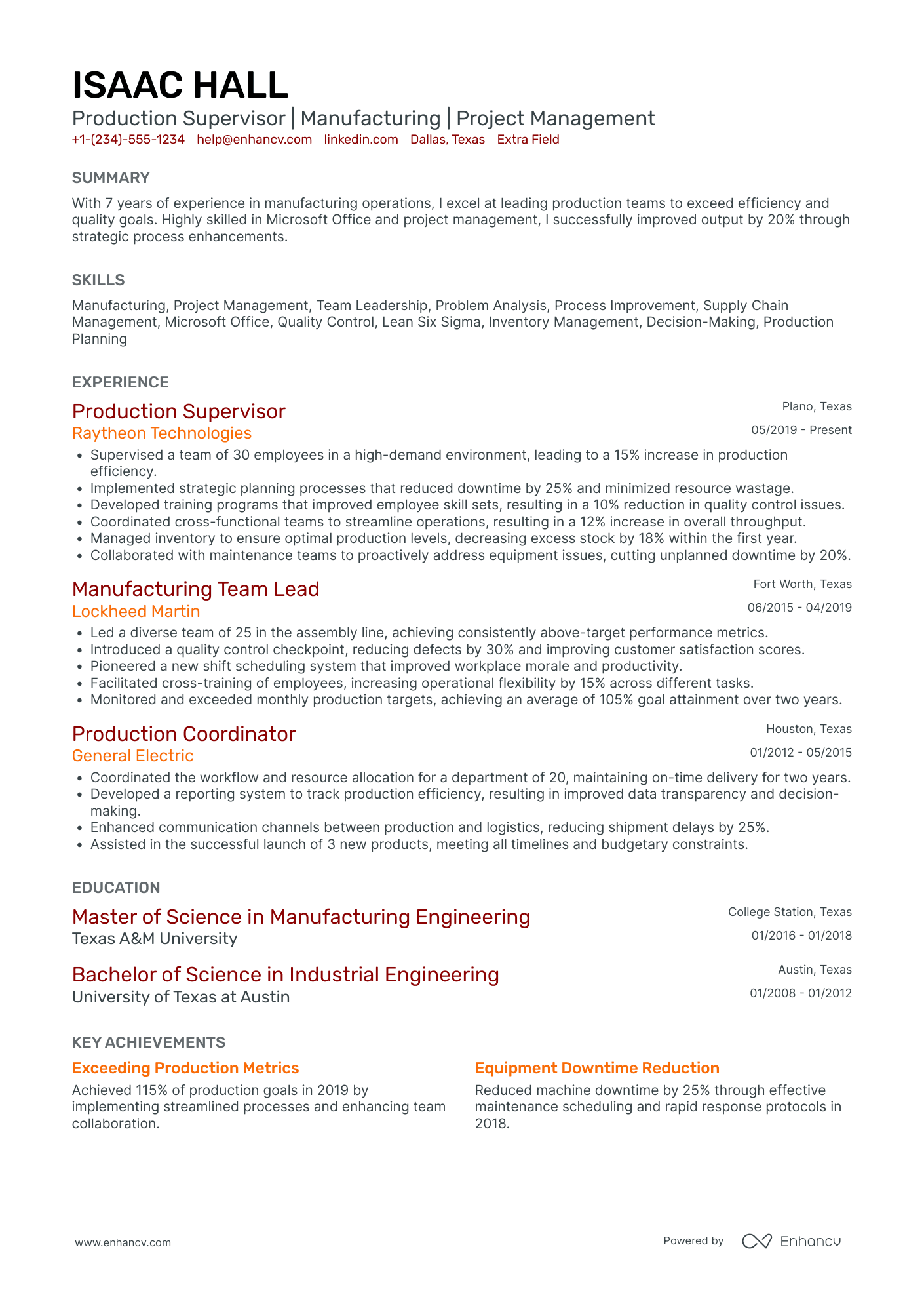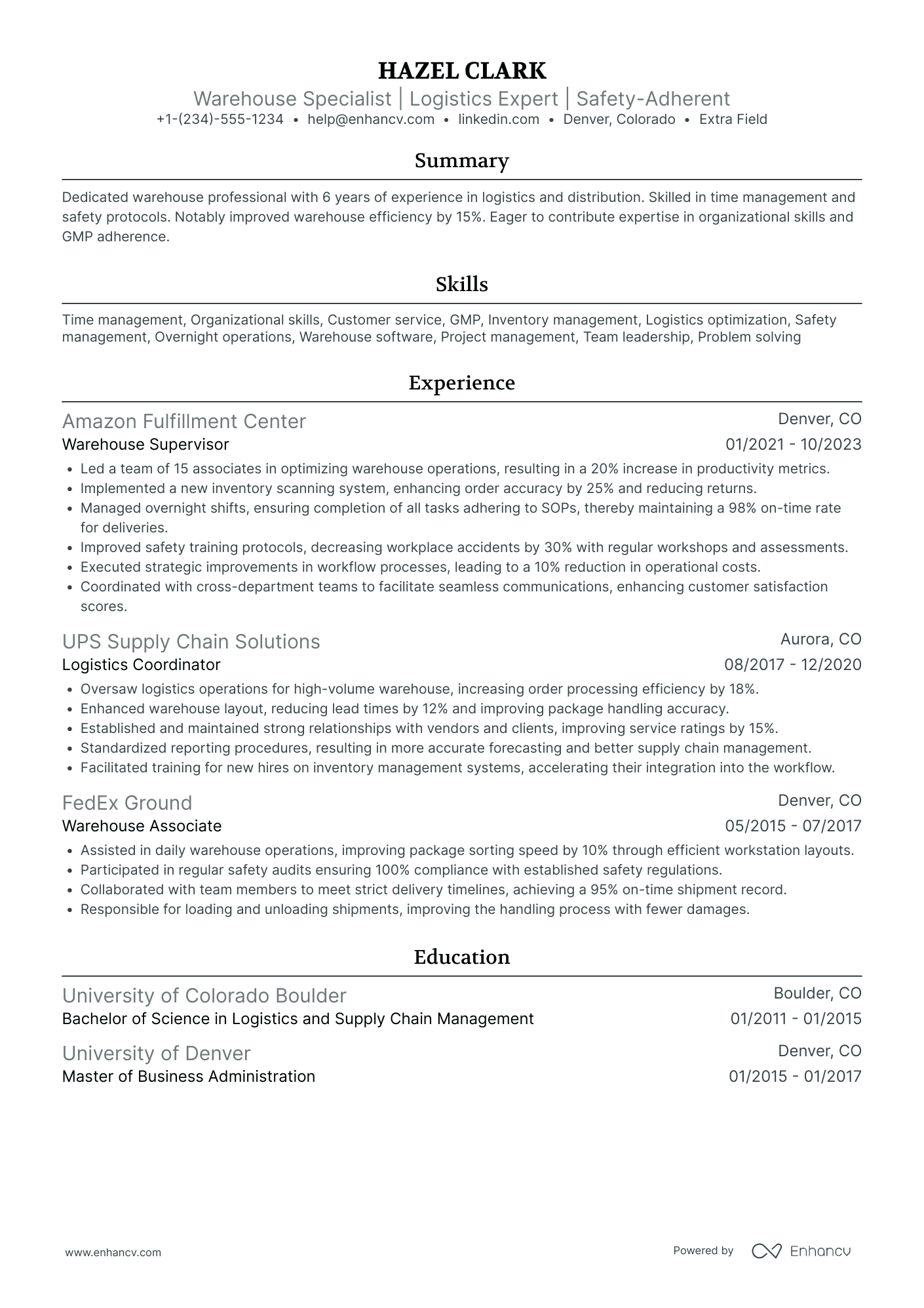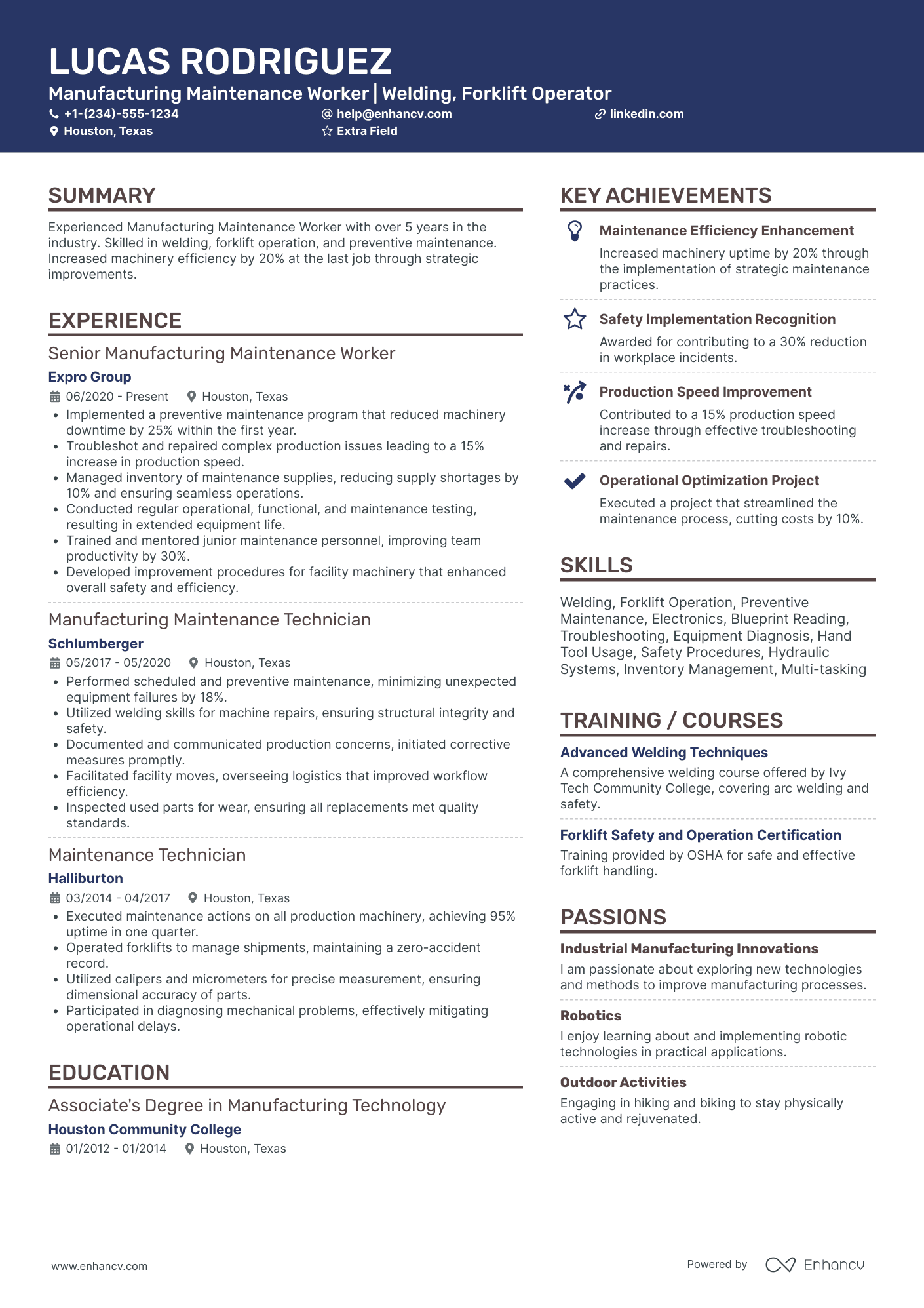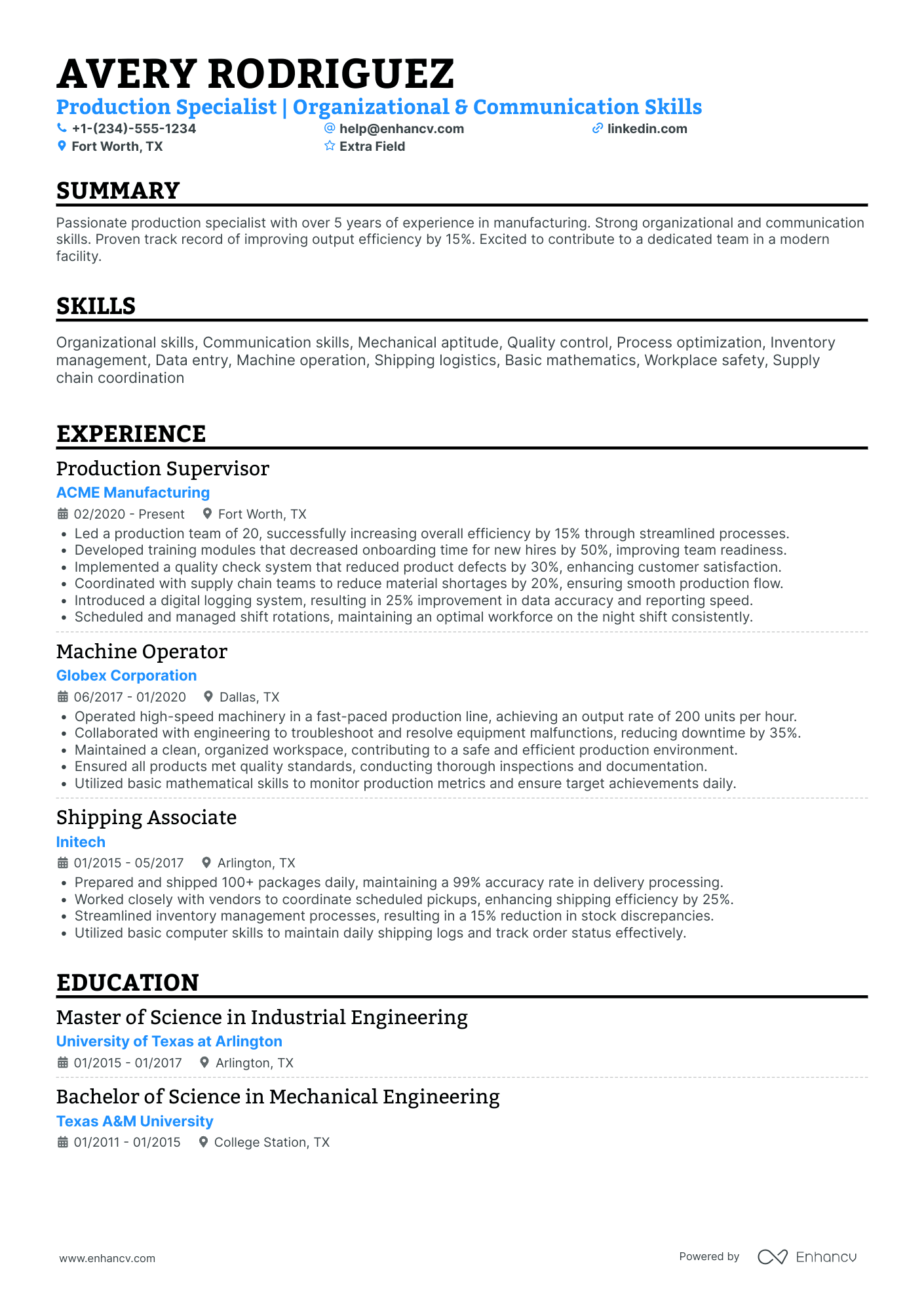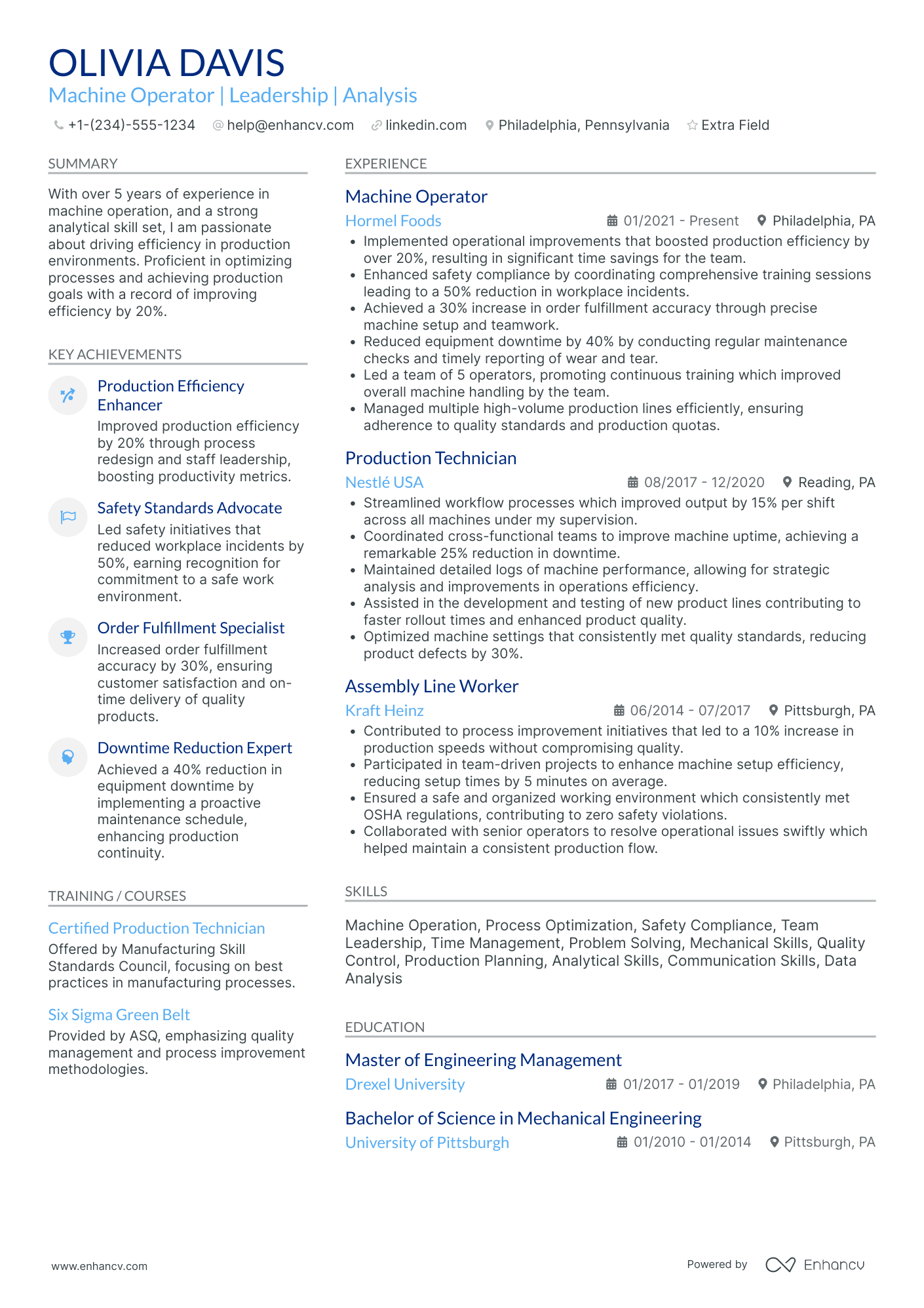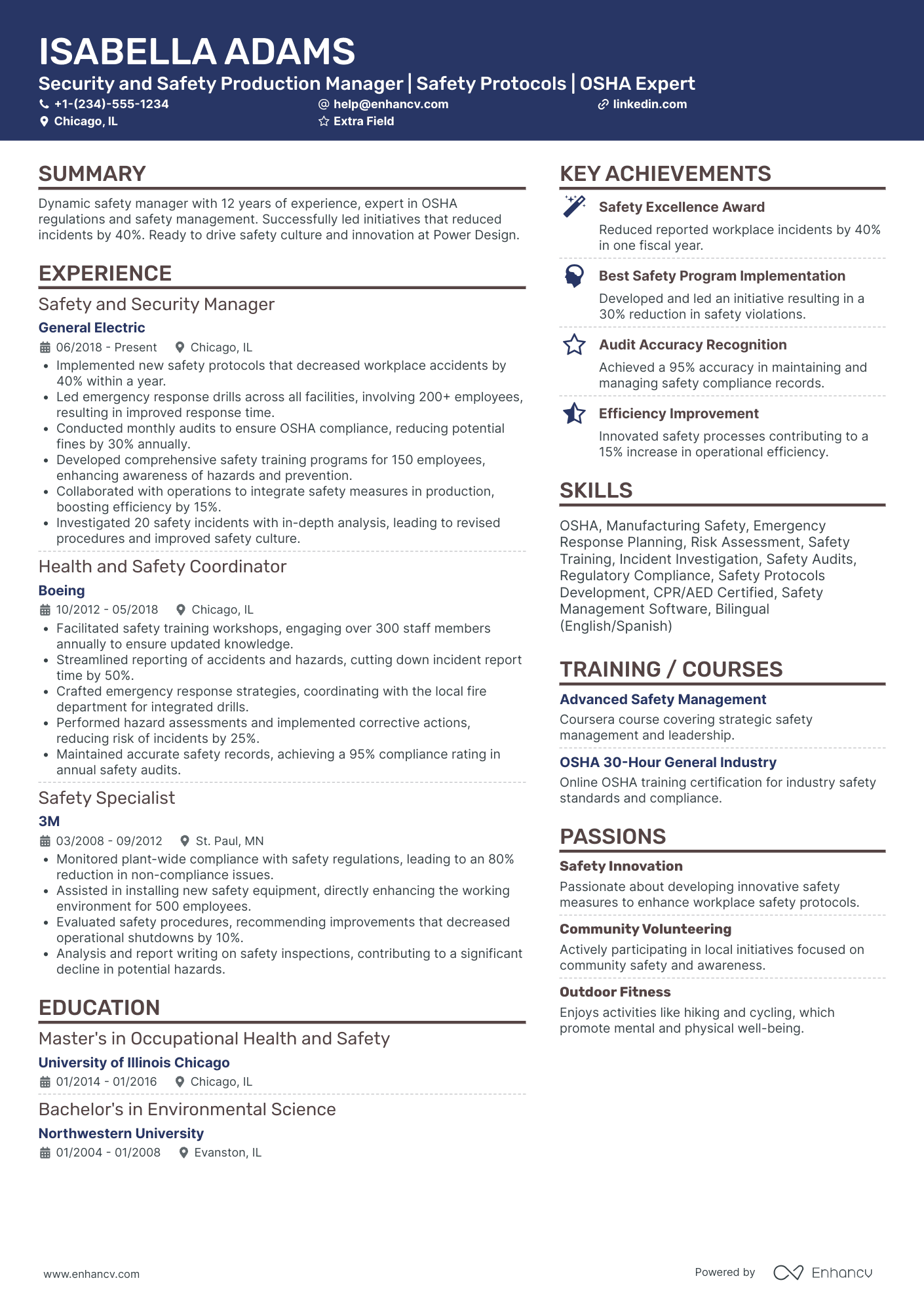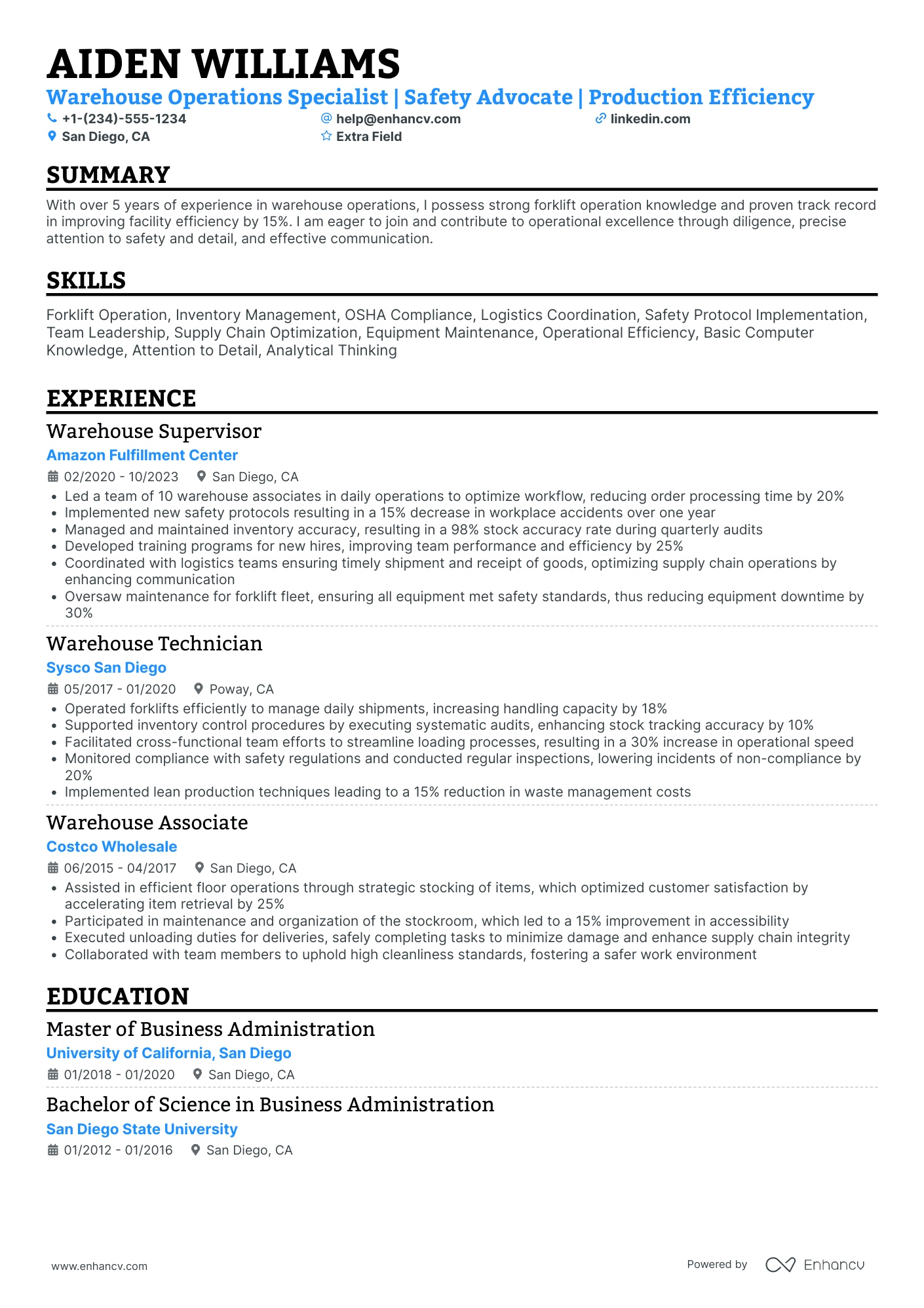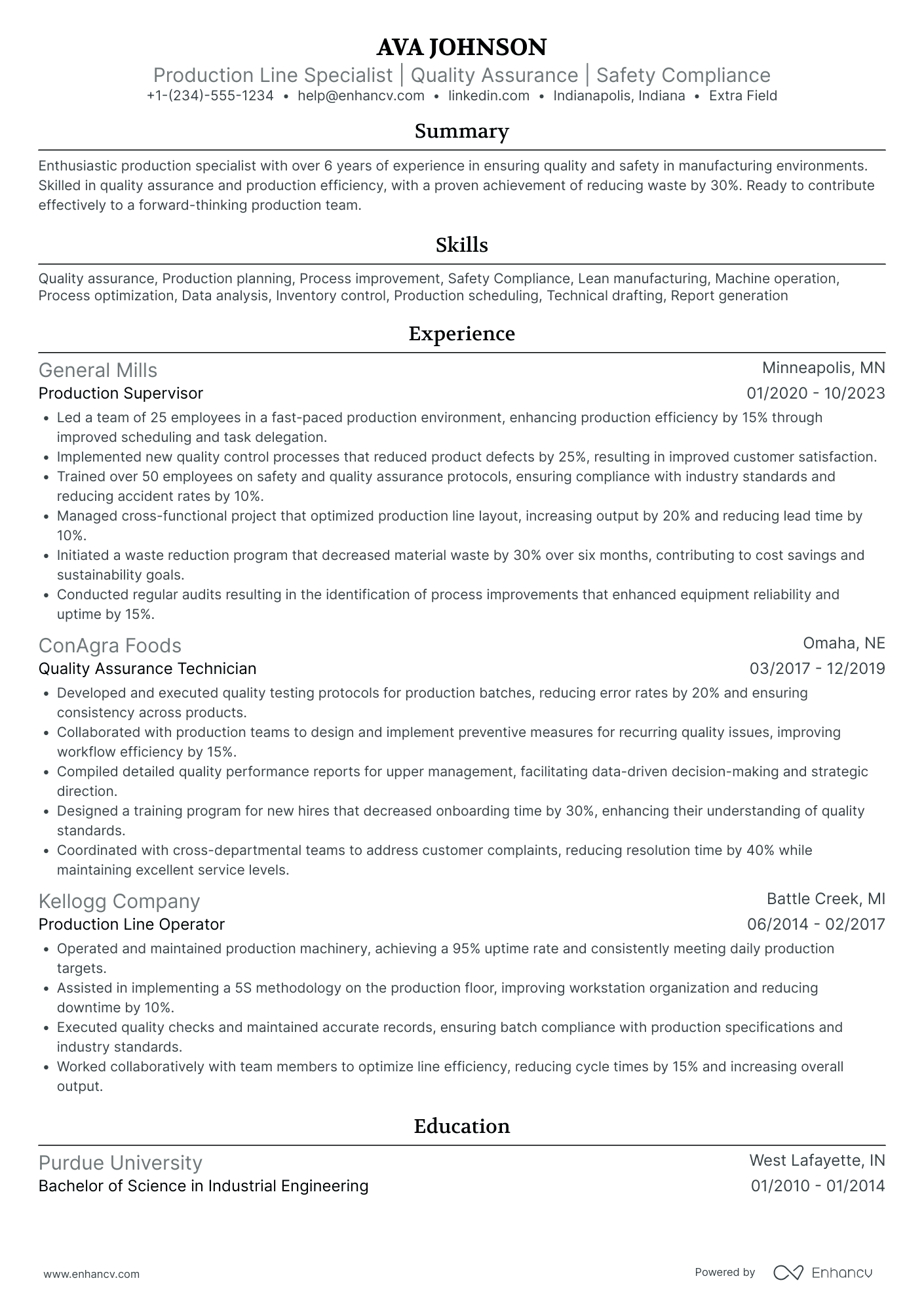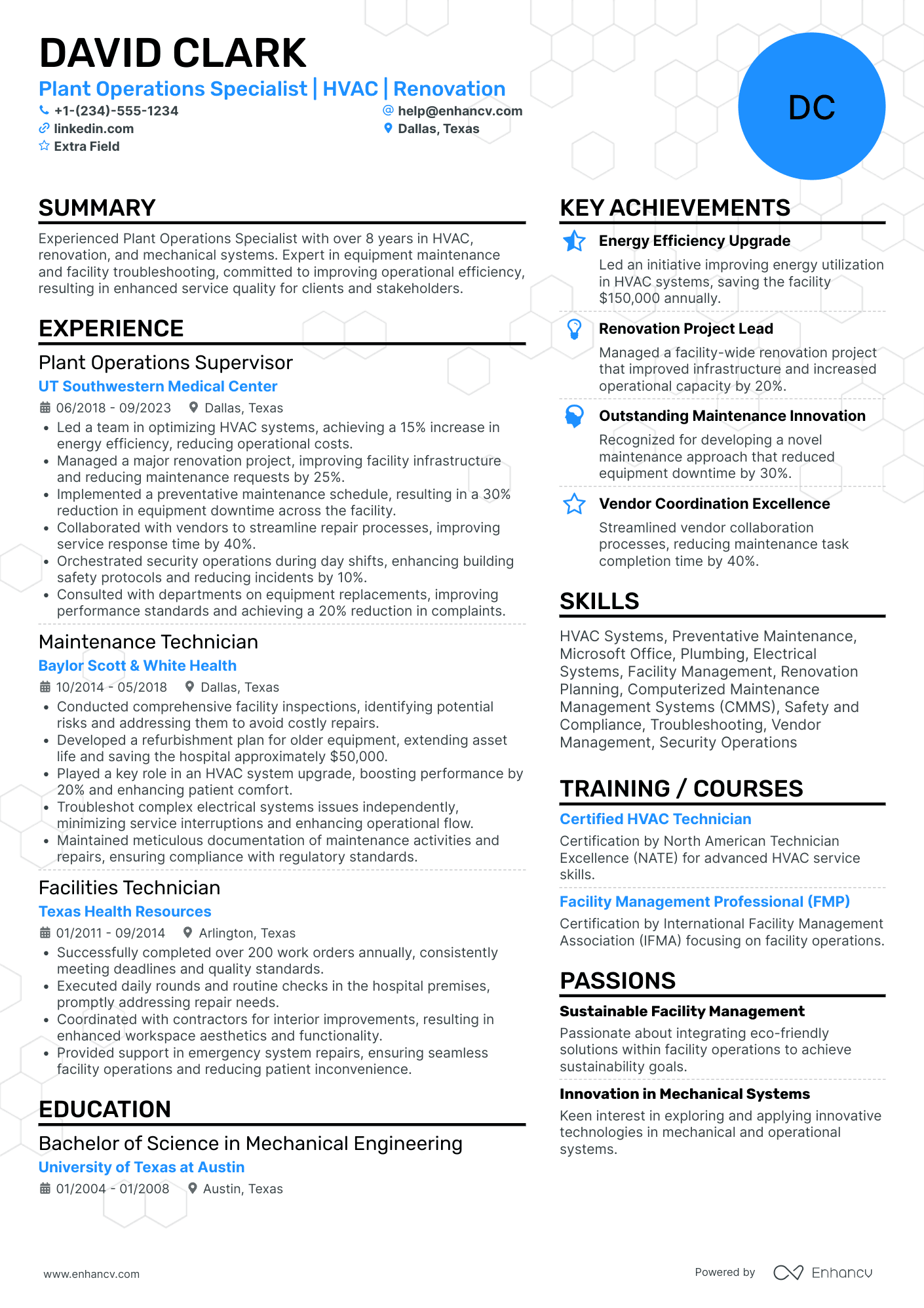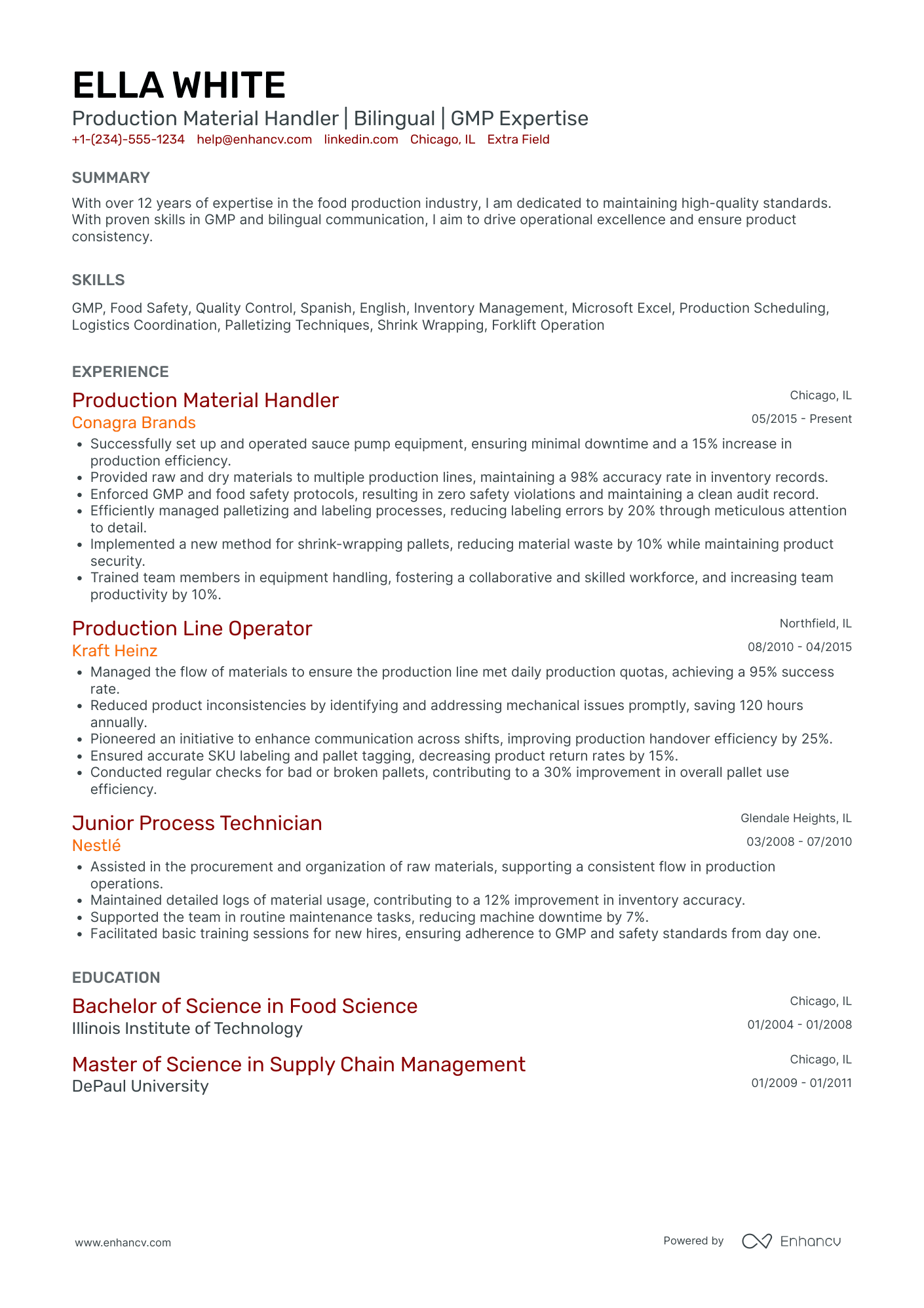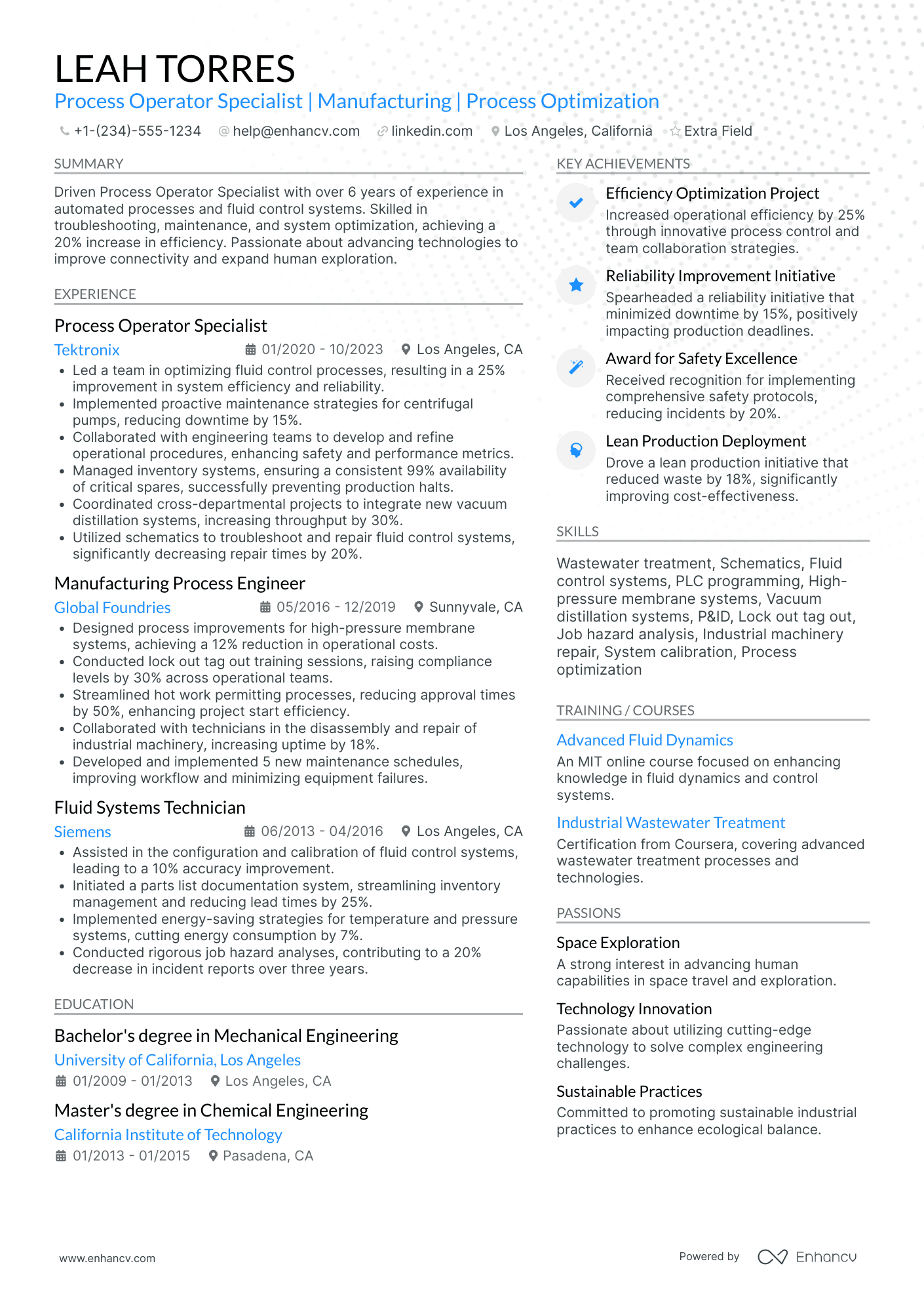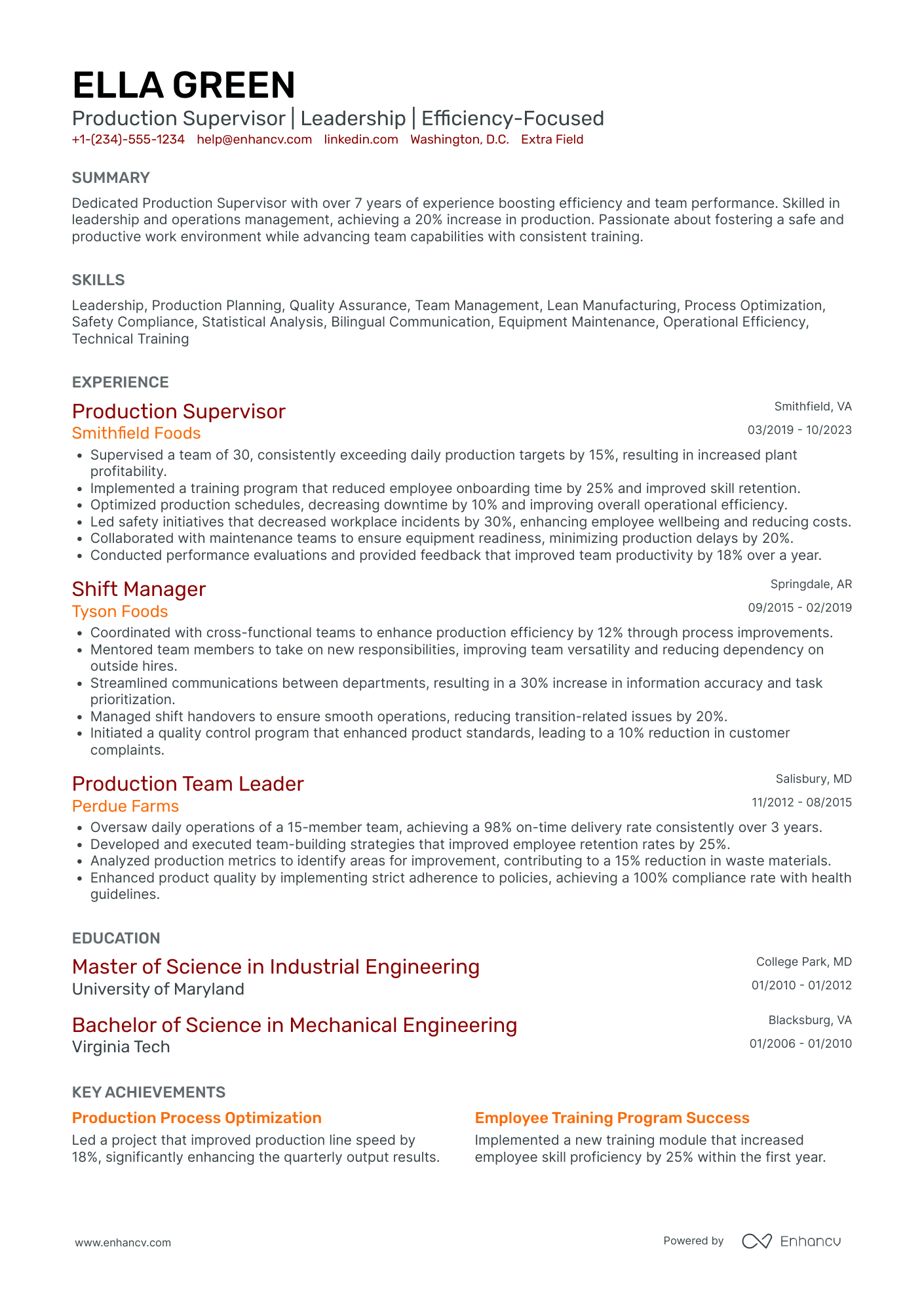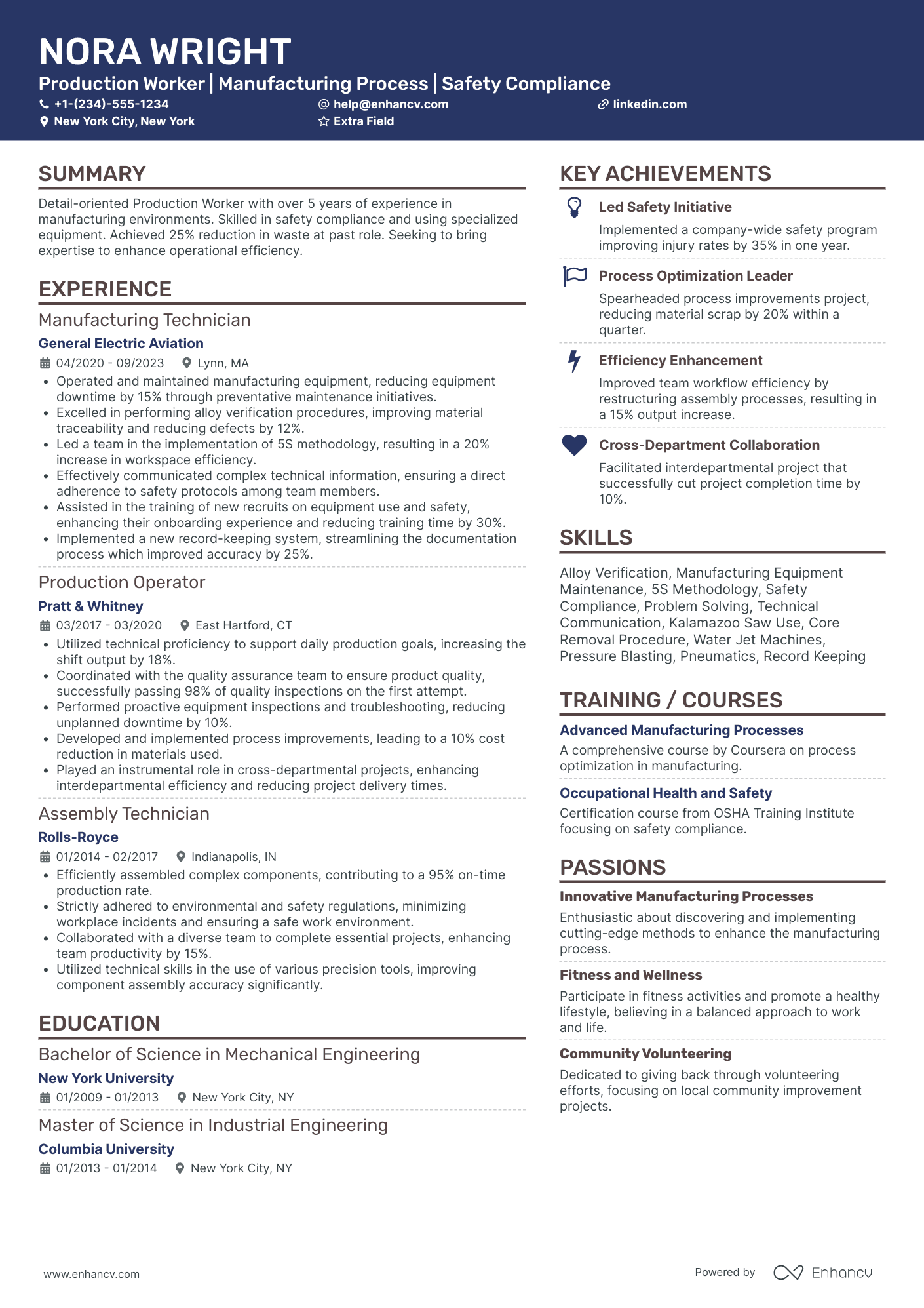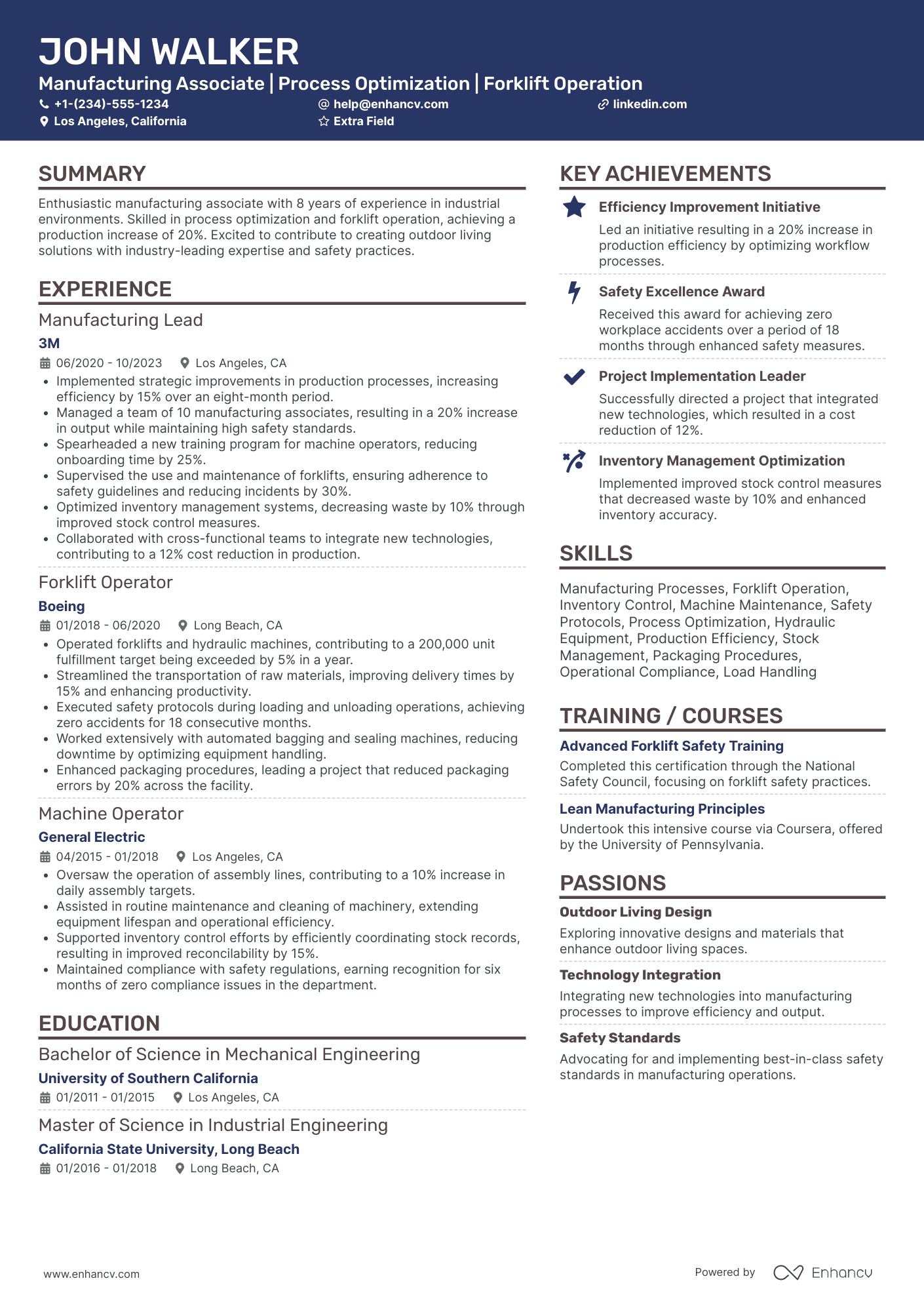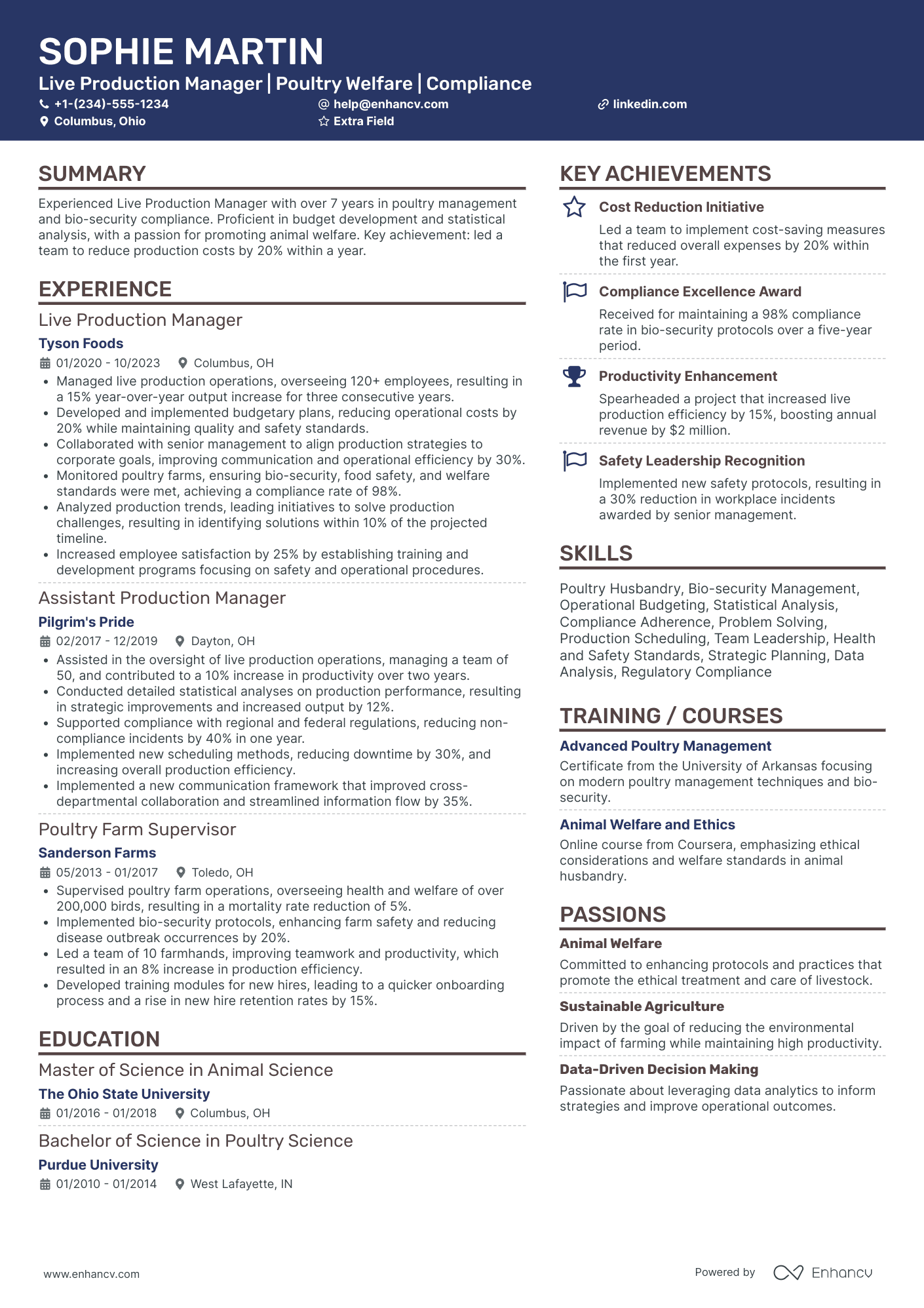Factory Worker resumes often struggle with effectively highlighting transferable skills. Our resume examples demonstrate how to showcase these skills in a compelling way, making it easier for you to stand out. Explore the following examples to see how you can enhance your resume today.
Factory Worker resume examples
By Experience
Junior Factory Worker
Senior Factory Worker
Lead Factory Worker
Factory Shift Worker
By Role
Parts Manager
Parts Manager roles can be found in various industries, but most prominently in the automotive sector. To increase your chances of securing a Parts Manager job, consider the following points during your application process.
Prior experience in inventory management is beneficial. Experience in systems like ERP or SAP can set you apart from other applicants. Make sure to shine a light on your skills in this area.
Your resume should reflect your knowledge and understanding of the parts and equipment used in your specific industry. This can help you stand out in the eyes of hiring managers.
Don't just list your technical and operational skills. Prove their impact. Use phrases like 'improved efficiency by…' or 'reduced costs through…'. The more concrete your achievements are, the better. Follow the 'skill-action-results' pattern.
Production Technician
The Production Technician role is vital in segments like manufacturing, food processing, pharmaceuticals and others. To increase your job prospects for this position, consider these tips:
- Practical skills and hands-on experience are essential in this role; make sure to highlight your experience with various machinery.
- List any specific techniques or methodologies you have experience with - whether it's Lean manufacturing, quality control methods or assembly procedures. It could be your edge.
- Leadership roles or teamwork merits should be illustrated. Working in a production line often involves cooperation. Stellar references from previous teams would be a powerful social proof.
- Demonstrate your skills not just by listing them, but by how these have delivered results. For instance, 'improved production time by…' or 'increased yields through…'. Adhere to the 'skill-action-results' approach.
